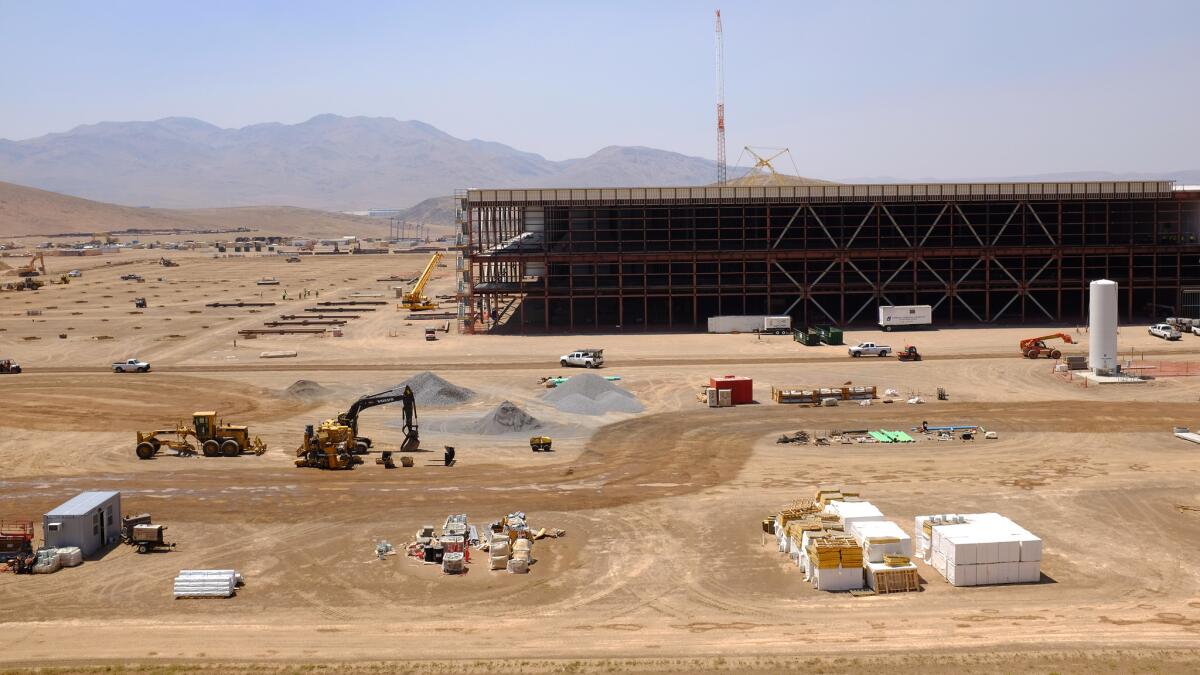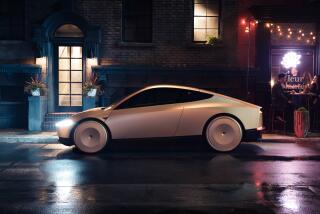After SpaceX rocket crisis, Elon Musk also faces Tesla safety and cash-flow issues

- Share via
Reporting from San Francisco — On Wednesday, Elon Musk tweeted that a blog post on improvements to Tesla Motors’ Autopilot system was imminent.
On Thursday morning, a SpaceX rocket blew up on the launchpad. The Autopilot news would have to wait.
Musk is chief executive of both companies. When the rocket crisis passes, he’ll return to addressing upgrades to Autopilot, which has been at the center of a crisis itself since a fatal crash in Florida in May when the system’s sensors couldn’t distinguish the side of a big-rig truck from an overcast sky.
Detailing Autopilot improvements now would get Tesla in front of autonomous car regulations expected to be issued by the U.S. National Highway Transportation Safety Administration in coming weeks.
Tesla watchers say the company is likely to add more radars and cameras to the system in addition to a software upgrade.
The upgraded system “will have to be smarter and more capable of recognizing its surroundings,” said Karl Brauer, an analyst at Kelley Blue Book.
The only clue about what exactly Musk plans to announce came from his tweet Wednesday promising “major improvements” for Autopilot.
Those improvements will come “primarily through advanced processing of radar signals,” Musk tweeted, with a wide release in “a few weeks.”
He said he would post details on the Tesla website later Wednesday. On Thursday, he postponed the announcement until the “end of weekend.”
Beyond crashes and explosions, Musk is also trying to head off cash-flow problems.
In a securities filing Wednesday, Tesla said it will need to raise additional money by year’s end to finance the electric car maker’s $2.4-billion acquisition of SolarCity, which sells, leases and installs rooftop energy systems. Musk is SolarCity’s chairman, and owns a major stake in the company.
The deal has been widely criticized since Musk first proposed the merger in June. Critics suggested that it would be a bailout of SolarCity by Tesla investors.
SolarCity’s cash base is rapidly shrinking, even as Tesla must pay out $422 million to bondholders in the third quarter this year.
Tesla plans to start shipping the Model 3, a cheaper line of electric cars, by the end of 2017 — though probably not in high volume.
The Palo Alto company is also building a $5-billion battery factory in Nevada. Many analysts are wondering whether it can maintain enough cash flow to see those projects to completion.
Kelley’s Brauer pointed out that state incentives for buyers of electric cars, which have helped power Tesla’s success, will be expiring over the next few years. Brauer believes Musk “is going to run out of tax rebates before he gets to the real world consumer.”
Tesla’s shares slid $11.24, or 5.3%, to $200.11. Shares of SolarCity fell even further, closing down $1.88, or 9.1%, to $18.78.
ALSO
Stocks notch tiny gains, starting September on a quiet note
State-run retirement plan heads to California governor’s desk
Hanjin bankruptcy disrupts shipping at L.A., Long Beach ports







